20 of the Best Books on AI and Machine Learning in 2024
Books on Artificial Intelligence and Machine Learning are an excellent way to learn about neural networks, computer vision, deep learning, and how they’re impacting modern society. Plus they look awesome on your book shelf too. 😉
In this article, I’ve found 20 of the best books on AI and machine learning, covering everything from philosophy, business, and technical deep dives.
What Are Best Books on AI and Machine Learning?
If you’re looking to stay informed in the world of AI be sure to subscribe to the best AI newsletters!
1. Competing in the Age of AI
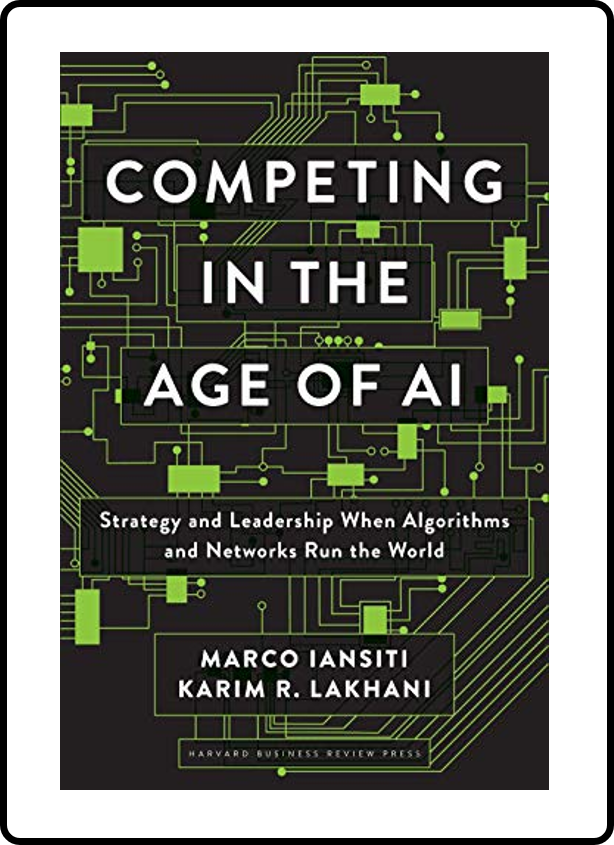
Competing in the Age of AI: Strategy and Leadership When Algorithms and Networks Run the World covers the transformation of business operations through AI, data, and analytics.
Authors Marco Iansiti and Karim R. Lakhani illustrate how artificial intelligence technologies remove long-standing growth constraints, enabling unprecedented scalability and versatility.
The book offers a framework for restructuring business models and discusses the impact of AI on competition and the economy.
It is ideal for business leaders and strategists interested in navigating the operational shifts induced by AI and understanding both the opportunities and risks involved.
Check Price ---
2. Life 3.0
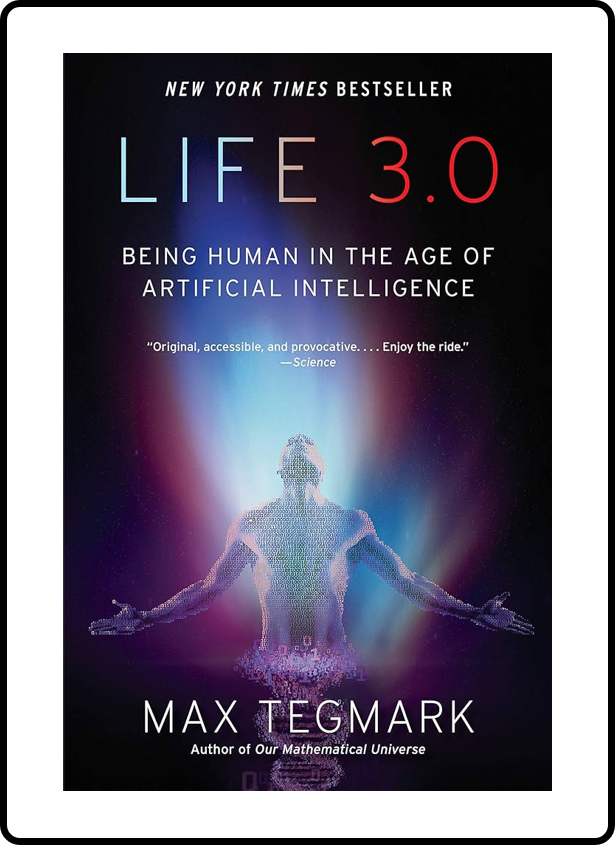
Life 3.0: Being Human in the Age of Artificial Intelligence written by Max Tegmark, critically examines the ethical and practical dimensions of AI’s role in the future.
The MIT professor outlines AI concepts and considers how the technology could serve humanity without causing harm.
The book tackles important questions, like the economic implications of automation and the security of AI systems, It’s ideal for those interested in the societal and ethical implications of AI, it presents a balanced view of potential utopias and dystopias shaped by artificial intelligence.
Check Price ---
3. The Business Case for AI
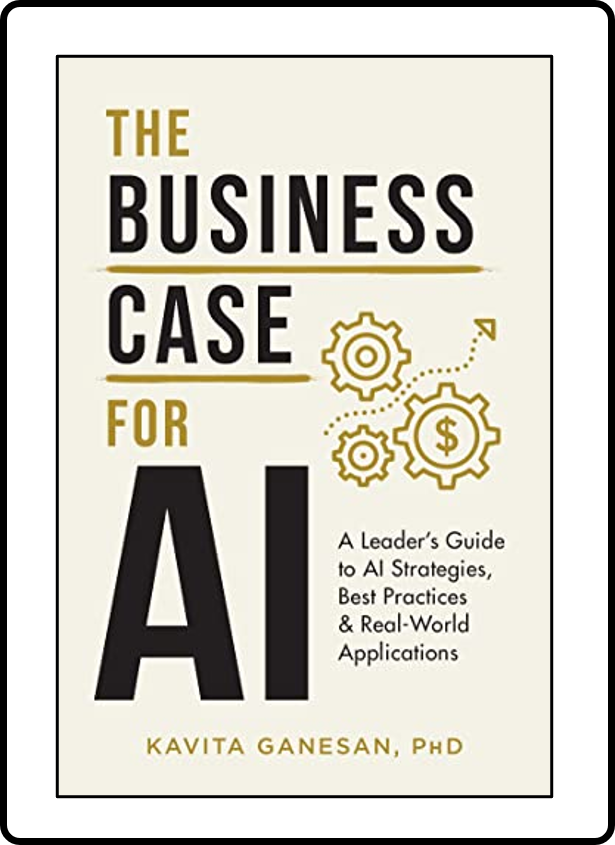
The Business Case for AI: A Leader’s Guide to AI Strategies, Best Practices & Real-World Applications by Kavita Ganesan is one of the best AI books for business leaders and serves as a comprehensive guide for implementing artificial intelligence into business operations.
The book covers the process of integrating AI, from initial assessment to successful deployment. It offers actionable insights on identifying AI opportunities, preparing for transitions, and measuring performance.
Ideal for decision-makers who need a non-technical understanding of AI’s potential, the book provides a practical framework and real-world examples to guide successful AI initiatives aimed at boosting revenue and operational efficiency.
Check Price ---
4. Artificial Intelligence Basics
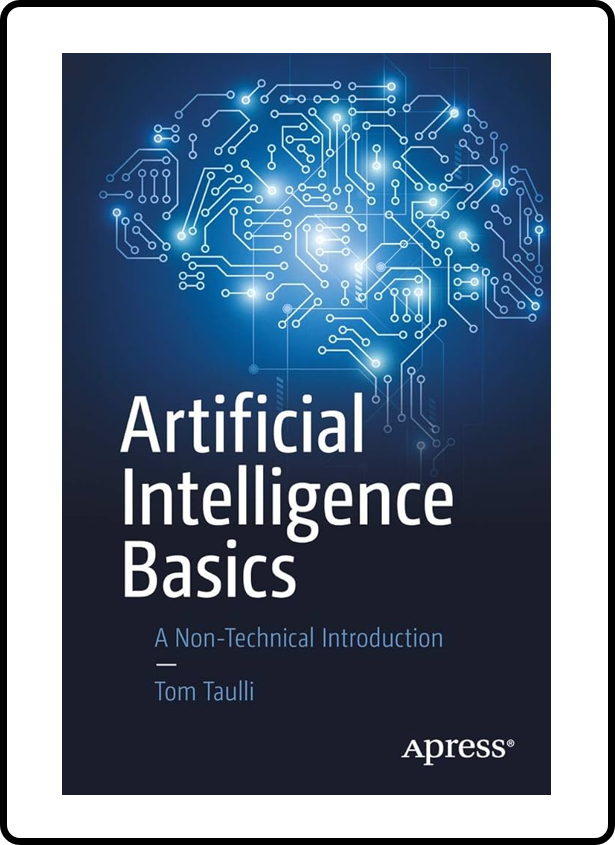
Artificial Intelligence Basics: A Non-Technical Introduction by Tom Taulli is a non-technical introduction to key AI concepts like machine learning, deep learning, and natural language processing.
The book aims to equip readers with an understanding of AI’s far-reaching impact across various industries. It not only provides real-world case studies and implementation steps but also dives into larger questions about AI’s societal and ethical implications.
Ideal for business leaders, policy makers, or anyone interested in understanding AI’s role in today’s world, the book is a primer for preparing for an AI driven future.
Check Price ---
5. Faith in the Age of AI
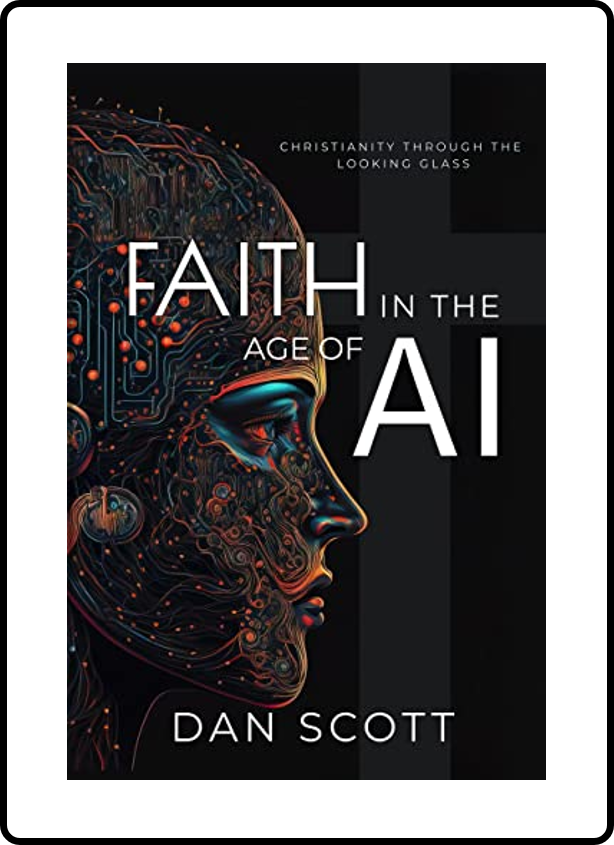
Faith in the Age of AI: Christianity Through the Looking Glass of Artificial Intelligence by Dan Scott is one of the best AI books for exploring the intersection of faith and rapidly advancing technologies like Artificial Intelligence and genomics.
The book invites readers to consider what ancient Christian thinkers, mathematicians, and philosophers might say about contemporary ethical and existential questions. Topics like machine sentience, the nature of reality, and the implications of genetic research are examined through a faith-based lens.
This book is well-suited for readers interested in the theological implications of modern science and technology, offering an interesting read on navigating faith in an increasingly complex world.
Check Price ---
6. 2084
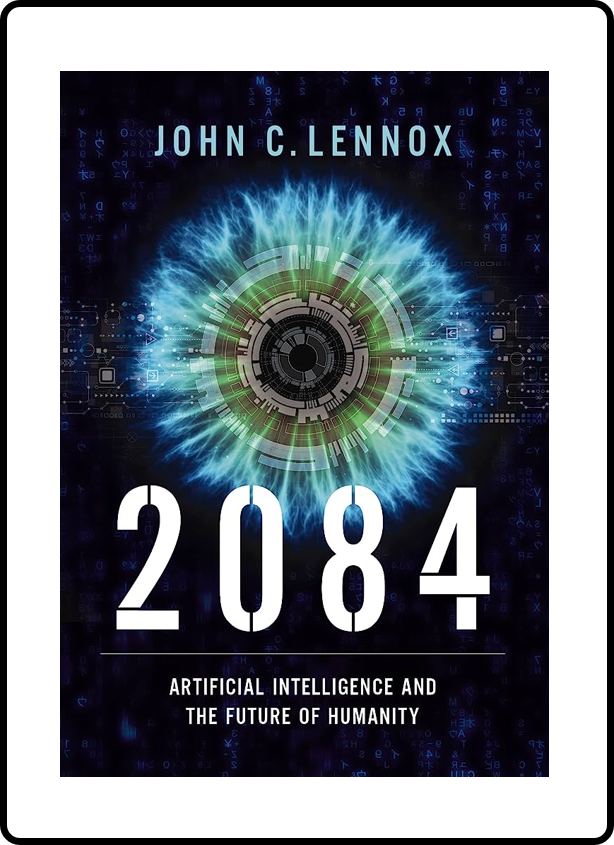
2084: Artificial Intelligence and the Future of Humanity by mathematician and philosopher John Lennox addresses the profound questions that artificial intelligence and technology raise about the future of humanity.
The book covers key developments in AI, neural networks, and bioengineering, presenting a range of expert opinions on the subject. Lennox argues that Christianity offers evidence-based perspectives on issues like superintelligence, human intelligence, and human nature.
Aimed at a broad audience, the book simplifies complex topics, providing insights into the capabilities, benefits, and risks of AI. It’s a great read for anyone interested in the ethical and existential implications of technology.
Check Price ---
7. The AI Revolution in Medicine
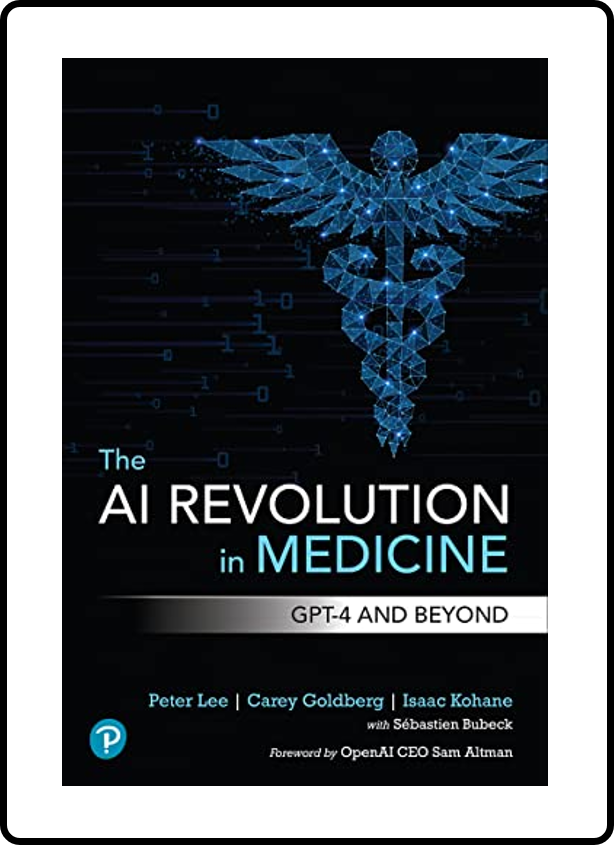
The AI Revolution in Medicine: GPT-4 and Beyond takes a comprehensive look at the transformative potential of GPT-4 and similar technologies in the medical field.
It takes readers through real-life scenarios, showing how AI can aid in diagnoses, streamline processes, and accelerate research. The book offers candid insights into the technology’s limitations and risks, while also exploring its benefits.
Healthcare professionals, policymakers, and patients will find valuable information on how to leverage AI for better patient care, cost reduction, and accelerated research.
The book serves as an essential guide for anyone interested in understanding and preparing for the impact of AI in healthcare.
Check Price ---
8. Scary Smart
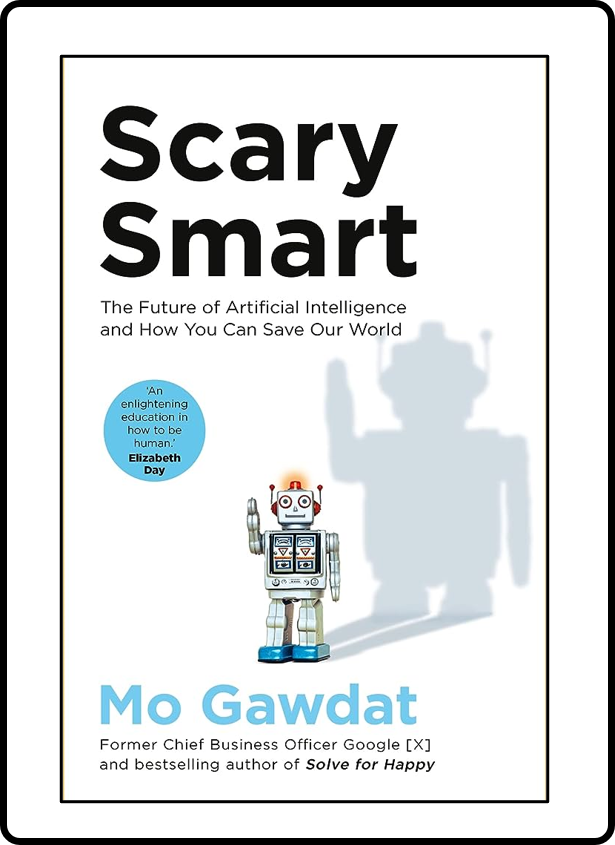
Scary Smart: The Future of Artificial Intelligence and How You Can Save Our World by Mo Gawdat addresses the urgency of ensuring AI develops in a manner that is beneficial for humanity.
The book peers into into how human-designed algorithms often reflect our own imperfections, leading to flawed AI behavior. Gawdat, with over 30 years of tech experience, including a role as chief business officer at Google, provides a blueprint for course-correcting AI development.
Aimed at the general public, the book argues that individuals hold the power to influence AI’s evolution. It’s on of the great artificial intelligence books for readers concerned about the ethical and societal implications of rapidly advancing AI.
Check Price ---
9. AI Superpowers
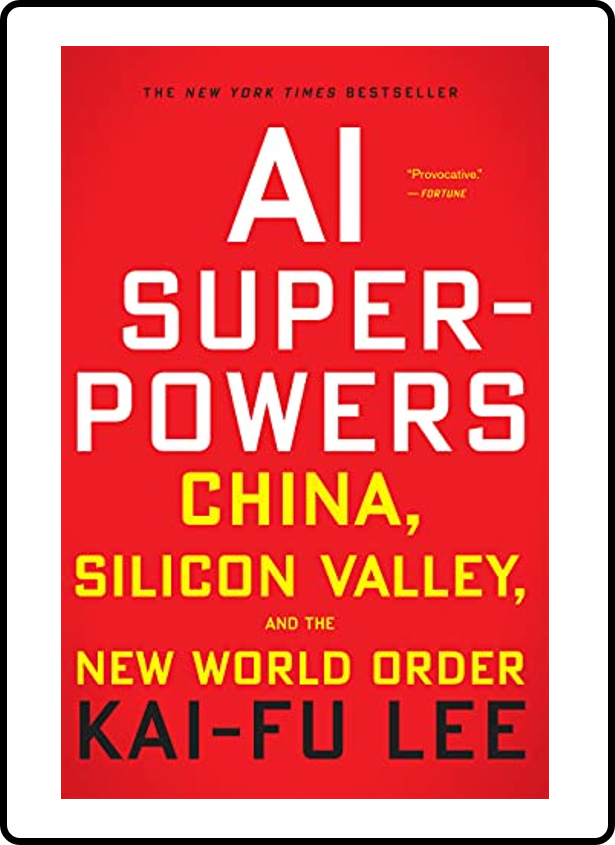
AI Superpowers: China, Silicon Valley, and the New World Order examines the AI competition between the United States and China, making a compelling case for why China could emerge as the next tech-innovation superpower.
Lee, who has a unique vantage point being Taiwan-born and having worked extensively in both U.S. and Chinese tech industries, explores the transformative potential of AI on both blue-collar and white-collar jobs.
Unlike some who advocate for universal basic income as a solution to job displacement, Lee believes that this might not be the answer. He offers a detailed look into which jobs will be vulnerable, which will be enhanced, and how we can prepare for these massive shifts.
This is one of the best AI books for anyone interested in understanding the socio-economic and geopolitical implications of AI in the global context.
Check Price ---
10. Genius Makers
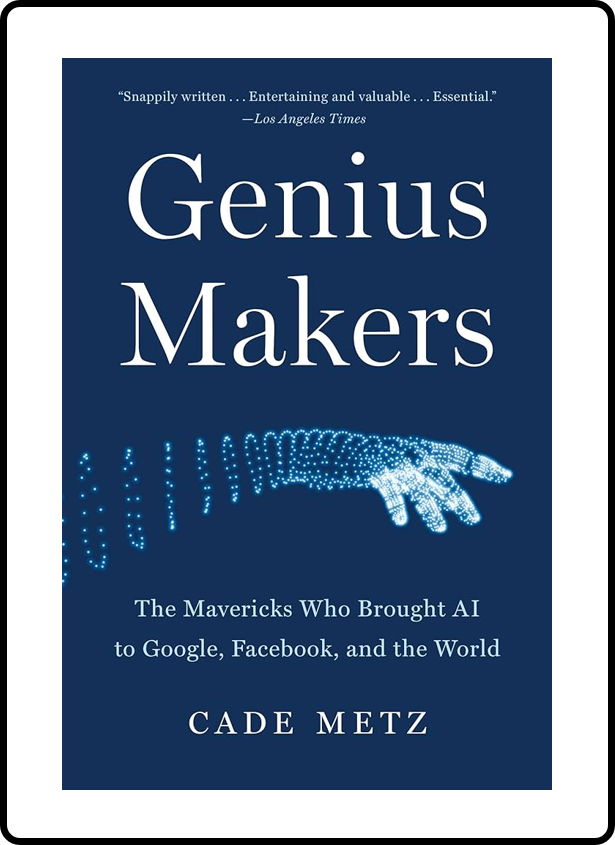
Genius Makers: The Mavericks Who Brought AI to Google, Facebook, and the World takes a closer look at the evolution of artificial intelligence, focusing on two pivotal researchers with differing approaches.
The book captures the competitive tech atmosphere involving giants like Google, Microsoft, and Facebook, as well as global interests, particularly concerning China.
Genius Makers is suitable for readers interested in AI’s ethical and societal implications, it raises pressing questions about emerging technology, human intelligence, privacy, and morality in an age dominated by AI.
Check Price ---
11. AI and Machine Learning for Coders
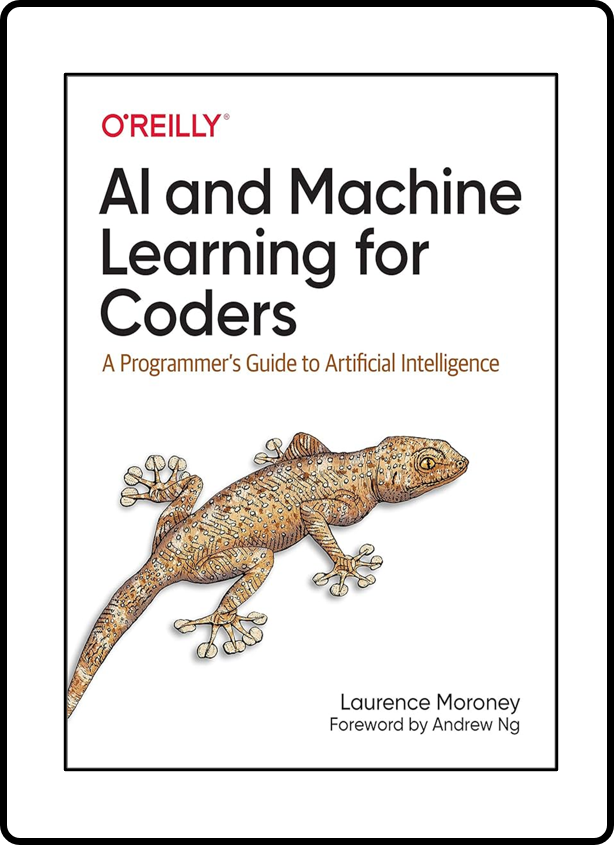
AI and Machine Learning for Coders: A Programmer’s Guide to Artificial Intelligence aims to provide a basic understanding for programmers aspiring to become AI computer systems experts.
Based on Laurence Moroney’s popular AI courses, it offers a code-first methodology to help you grasp essential machine learning topics, including computer vision, neural networks, network learning algorithms, and natural language processing.
Unlike many other guides, it avoids advanced math, focusing on practical coding computer science exercises. The book covers TensorFlow model building, mobile and web implementation, and cloud-based services.
It’s an ideal resource for those looking to gain employable skills in the AI field.
Check Price ---
12. Human Centered AI
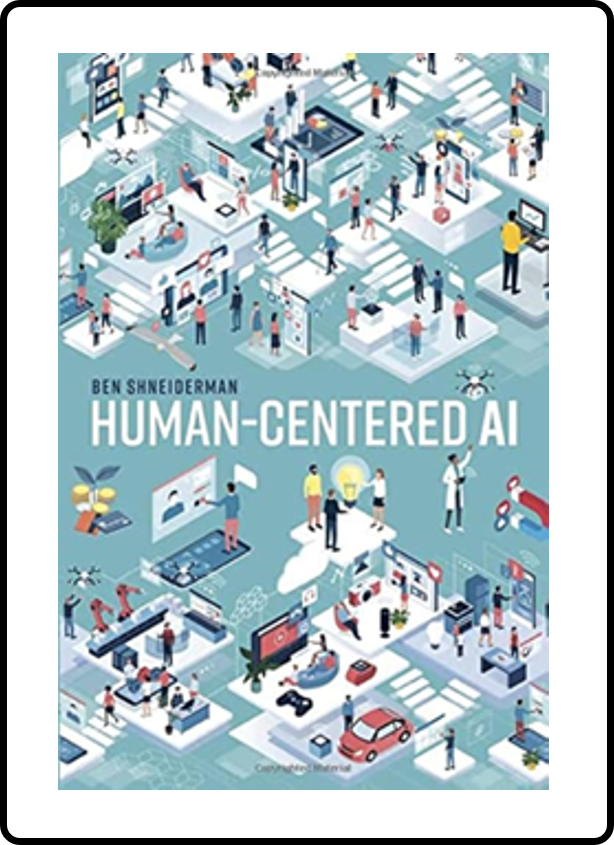
Human-Centered AI by Professor Ben Shneiderman provides a balanced perspective on integrating artificial intelligence to augment human capabilities rather than replace them.
The book serves as a guide for implementing Human-Centered AI strategies in design and testing, focusing on ethical considerations and practical realities.
It explores applications in fields like health, education, and business, aiming to create systems that are reliable, safe, and respectful of human values.
Ideal for technologists and ethicists, the book offers a roadmap for developing AI that genuinely benefits humanity.
Check Price ---
13. The Age of AI
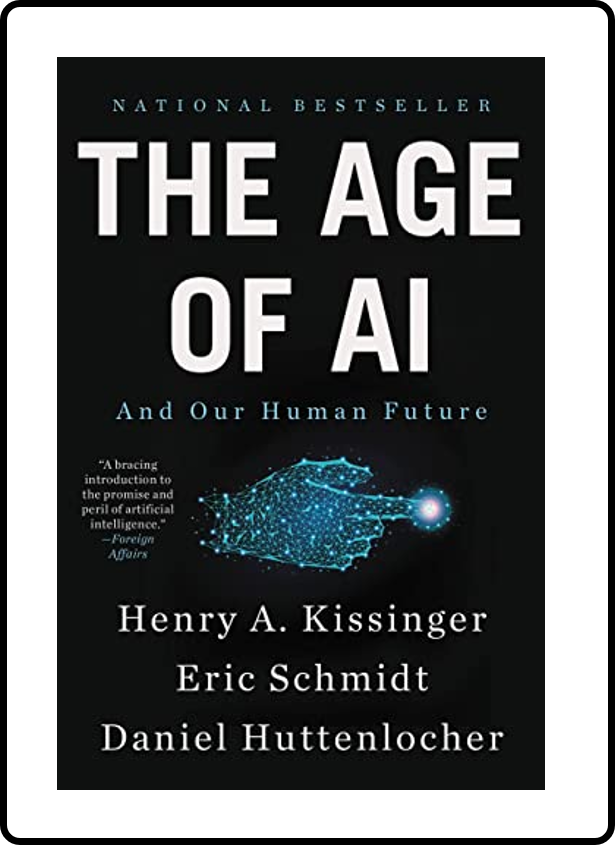
The Age of AI: And Our Human Future fives head first into the transformative impact of artificial intelligence on society, scrutinizing both its benefits and dangers.
Written by three intellectual authorities, the book explores how AI is shaping various sectors like medicine, military, and creative fields, while raising ethical concerns about misinformation and lack of control.
This book is ideal for policymakers, tech enthusiasts, and professionals in diverse industries who are interested in a balanced discourse on the ethical and practical implications of AI.
Check Price ---
14. The Singularity is Near
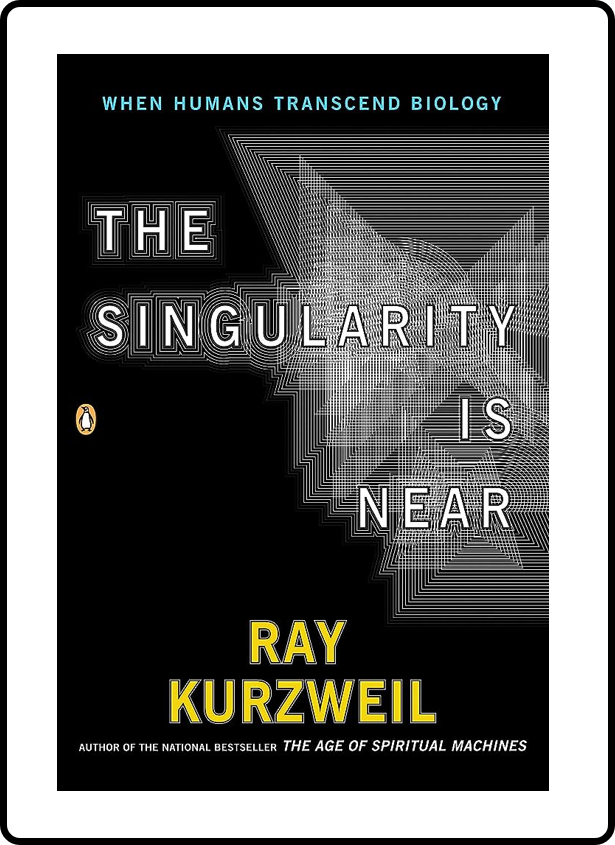
The Singularity Is Near: When Humans Transcend Biology by Ray Kurzweil offers an optimistic yet provocative view on the future integration of humans and technology.
The book builds on the Ray’s earlier works to discuss the next phase in human evolution: the fusion of human intelligence with machine capabilities.
Kurzweil envisions a future where our brains’ knowledge and skills will merge with machines’ speed, capacity, and information-sharing abilities.
Ideal for futurists, AI enthusiasts, and those intrigued by human-machine collaboration, the book offers a compelling glimpse into what might lie ahead.
Check Price ---
15. Super Intelligence
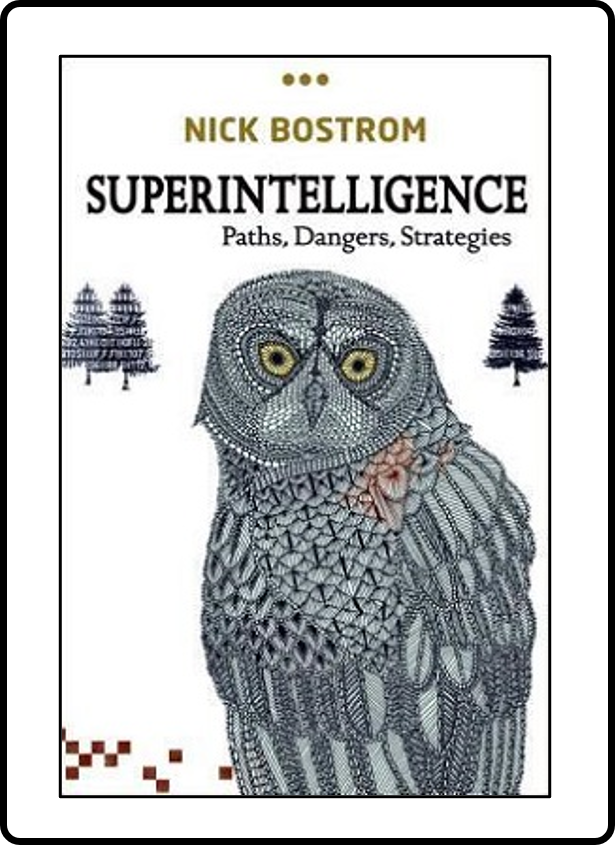
Superintelligence: Paths, Dangers, Strategies by Nick Bostrom tackles the critical questions surrounding the rise of machines with general intelligence that surpasses human capabilities.
It explores the risks and ethical dilemmas of creating such advanced artificial agents, questioning if they would be beneficial or potentially catastrophic for humanity.
Bostrom examines whether a controlled “intelligence explosion” is feasible and how we might prepare for it.
This intellectually rigorous book is best suited for readers interested in the ethical and existential implications of AI, as well as those in policy-making or advanced AI research.
Check Price ---
16. Power and Prediction
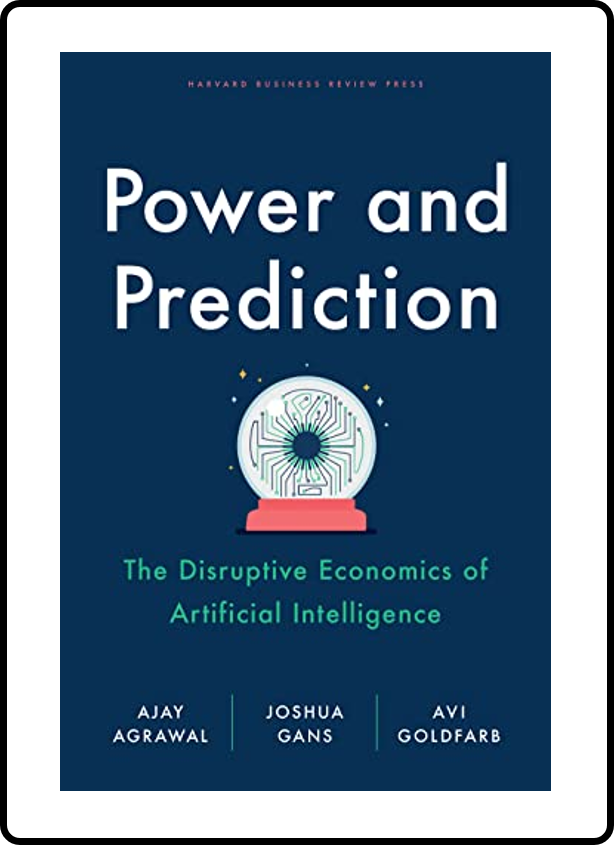
Power and Prediction: The Disruptive Economics of Artificial Intelligence looks into the transformative impact of artificial intelligence on various industries and decision-making processes.
Written by economists Ajay Agrawal, Joshua Gans, and Avi Goldfarb, this book is a sequel to their bestselling Prediction Machines. It examines how AI shifts the burden of prediction from humans to machines, enhancing decision speed and accuracy.
The book is rich in practical advice and is primarily intended for business leaders and policymakers navigating the age of artificial intelligence. It explores the system-level innovation and disruptions that AI brings, offering insights on leveraging opportunities and safeguarding positions.
One of the best AI books for understanding the real-world applications of AI in decision-making.
Check Price ---
17. Artificial Intelligence in Finance
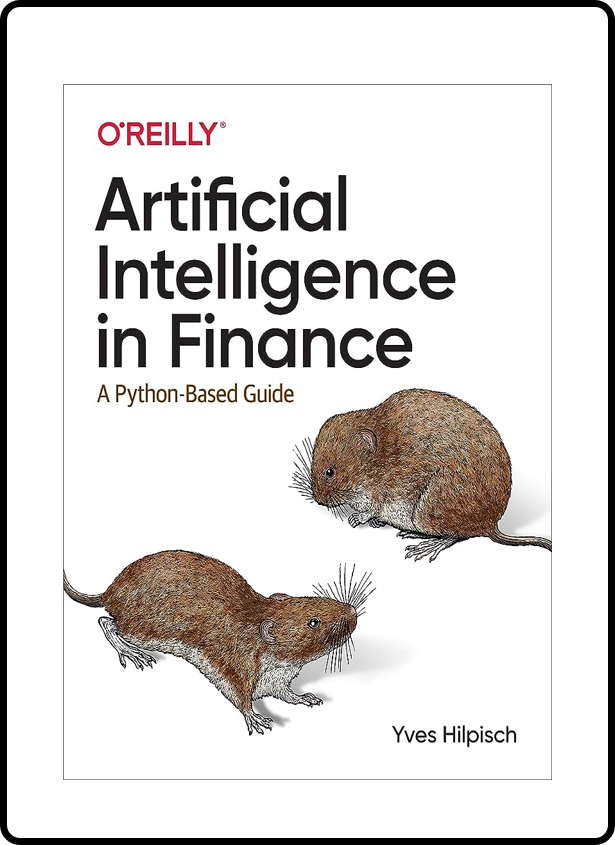
Artificial Intelligence in Finance: A Python-Based Guide provides a comprehensive guide on how artificial intelligence and machine learning are poised to reshape the financial industry.
The book is aimed at practitioners, students, and academics in both finance and data science. It offers hands-on Python examples to demonstrate machine learning and deep learning algorithms, including neural networks and reinforcement learning, and their applications in finance.
The book focuses on using AI to discover and exploit statistical inefficiencies in financial markets through algorithmic trading. It also discusses the future implications of AI, touching upon concepts like artificial general intelligence and the potential for a financial singularity.
A must-read for those interested in the intersection of finance, artificial intelligence, and machine learning.
Check Price ---
18. Human + Machine
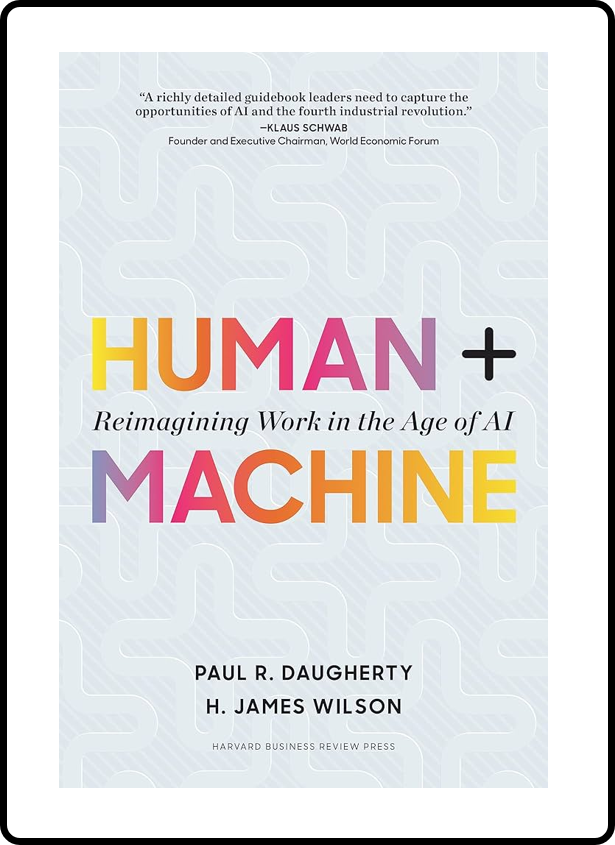
Human + Machine: Reimagining Work in the Age of AI by Paul R. Daugherty and H. James Wilson, serves as a comprehensive management playbook for adapting to the age of artificial intelligence.
It emphasizes the transformation of business processes through the synergy of human intelligence and AI systems. Based on research with 1,500 organizations, the book outlines new hybrid roles involving humans and machines, aiming to improve innovation and profitability. A leader’s guide section offers five key principles for becoming an AI-fueled business.
This book is particularly beneficial for executives, workers, and students aiming to navigate the real-world challenges and opportunities that AI presents.
Check Price ---
19. Artificial Intelligence A Modern Approach
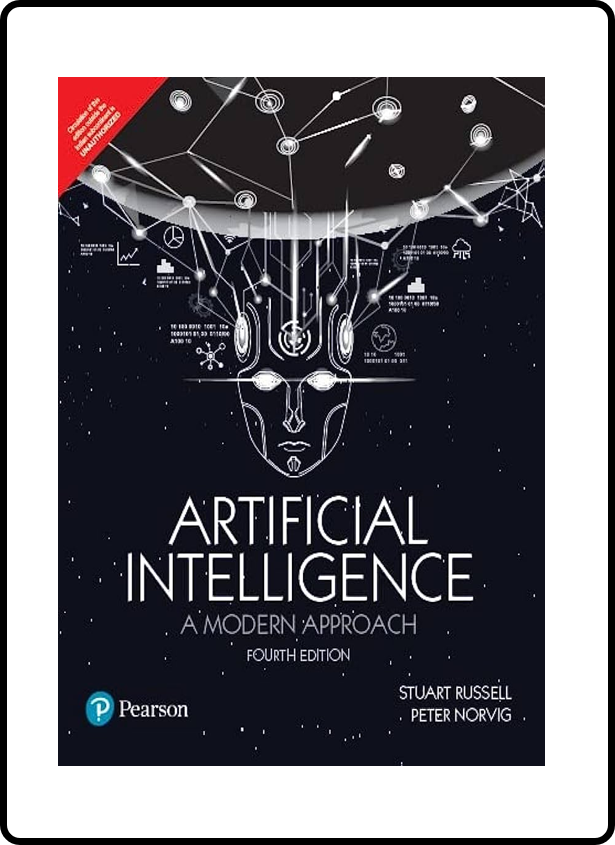
Artificial Intelligence A Modern Approach by Stuart J. Russell and Peter Norvig is a comprehensive textbook that has become the gold standard for the study of artificial intelligence.
Aimed primarily at undergraduate students, the book is also well-suited for graduate-level studies, supported by an extensive bibliography for further reading.
Covering a wide range of AI topics, the book presents programs in pseudo code, with multiple language implementations available online.
Ideal for academics, students, and self-learners, it offers a deep dive into the fundamentals and applications of AI.
Check Price ---
20. AI 2041
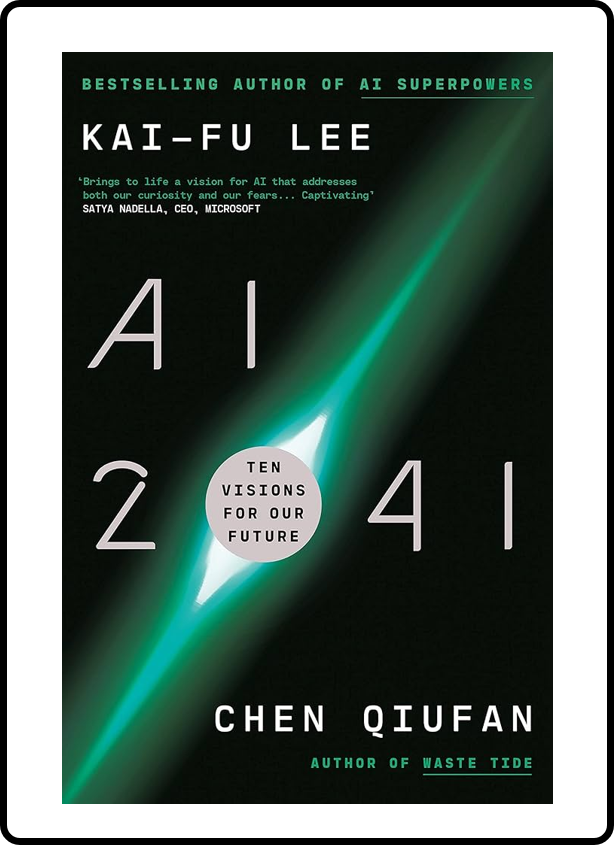
AI 2041: Ten Visions for Our Future, Kai-Fu Lee and Chen Qiufan offer a compelling glimpse into how artificial intelligence could shape our world by that year.
This book is unique for combining fictional short stories with expert commentary, making it one of the best books on AI for those interested in both human values and technological possibilities. It covers a wide range of AI technologies, including deep learning, mixed reality, robotics, and autonomous weapons, presenting scenarios where AI both enhances and complicates life.
Readers will encounter characters and settings that explore the abundance and potential downsides of AI.
Ideal for anyone interested in the societal and ethical implications of AI, the book has been critically acclaimed and is especially useful for those who wish to understand the broader impact of AI on modern society.
Check Price ---
Who Should Read Books on AI and ML?
Books on AI (Artificial Intelligence) and Machine Learning should be read by a diverse group of individuals, each with their own motivations and objectives. Broadly, the audiences can be categorized as follows:
- Students and Academics: Students pursuing computer science, data science, statistics, and related fields can greatly enhance their understanding and skill set in these domains. Academics researching or teaching in these areas would also benefit from staying updated with the latest advancements and methodologies.
- Technology Professionals: This category includes software engineers, data scientists, machine learning engineers, and IT professionals looking to expand or update their skill sets. Understanding the principles and developments in AI and machine learning can be pivotal for career advancement and working on cutting-edge technologies.
- Industry Executives and Managers: Executives, business leaders, and managers in tech or tech-driven industries need to understand the strategic implications of AI and machine learning on their business operations, decision-making, and competitive positioning. Books that provide an overview of AI applications in business can be particularly beneficial.
- Policy Makers and Regulators: Individuals involved in governance, policy-making, and regulation related to technology, privacy, and ethics should be informed about AI and machine learning. This knowledge is crucial for creating rules and regulations that protect users while fostering innovation.
- AI Enthusiasts and Hobbyists: Individuals with a keen interest in technology trends, even without a formal background in computer science, can find accessible books on AI and machine learning that provide insights into how these technologies are shaping our future.
- Educators and Trainers: Those involved in teaching or training others on technical topics can benefit from reading these books to ensure their content is current and relevant, facilitating better educational outcomes.
- Researchers in Other Disciplines: Scholars in fields such as biology, medicine, economics, or environmental science increasingly use AI and machine learning in their research. Understanding these tools can open up new methodologies and avenues for discovery.
- Ethicists and Social Scientists: Understanding the societal impact, ethical considerations, and human implications of AI is crucial for these professionals. It helps inform debates and research on the broader implications of technology on society.
Regardless of the category, the key is to choose books that match one’s background knowledge and interests. For beginners, introductory texts that cover fundamentals and provide a broad overview are best. Those with more experience might seek out specialized texts that delve deeply into specific algorithms, applications, or
Wrapping Up
Today we took a look at the best AI books covering everything in machine learning, neural networks, computer science, AI computer science, and more!
So whether you’re a leading AI researcher looking to read about advanced machine learning models, or just someone looking to get started with AI skills, there’s a book for you!
